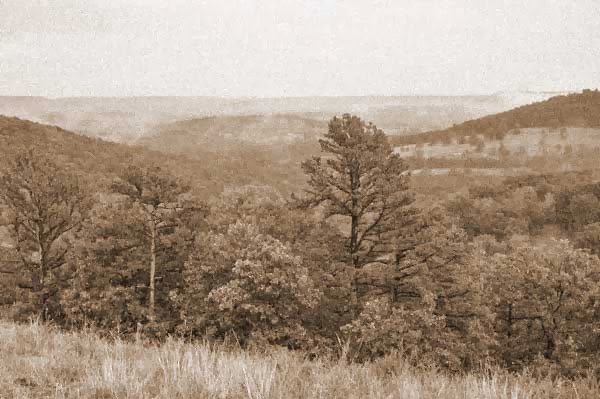 |
| North entrance to Yellowstone near Mammoth Hot Springs |
On a warm day in July, Ed walked up the hill behind the Henderson's store and he didn't return. He had told nobody he was leaving and no one saw him go. Given his peculiar habits and his comings and goings while performing his duties, no one knew he was missing for several weeks. When it was determined he had not checked in and nobody had seen him for almost a month, his quarters were searched where his guns and other items he would have carried with him while out scouting were found. A group of soldiers was organized and a search was begun. After several weeks of intense searching and another month of looking with no results, the official search was called off due to the winter weather setting in.
 |
| The hill behind the store where Ed's remains were found and where his light can still be seen. |
Now, almost 125 years later, there's an unexplained faint light that many people have seen on the top of the hill behind the Mammoth Hot Springs Village store. Both employees and visitors have regularly reported seeing it, most of whom have never heard of Ed Wilson's story. Oh, it's not there every night, but sometimes when the clear night sky is especially dark and it seems there are a million twinkling stars shining, a door from Wilson's dimension opens into the dimension of the living. The light on the hill is where Ed sat and with a heavy, broken heart, decided it would be impossible to live without his beloved Mary Rose.






